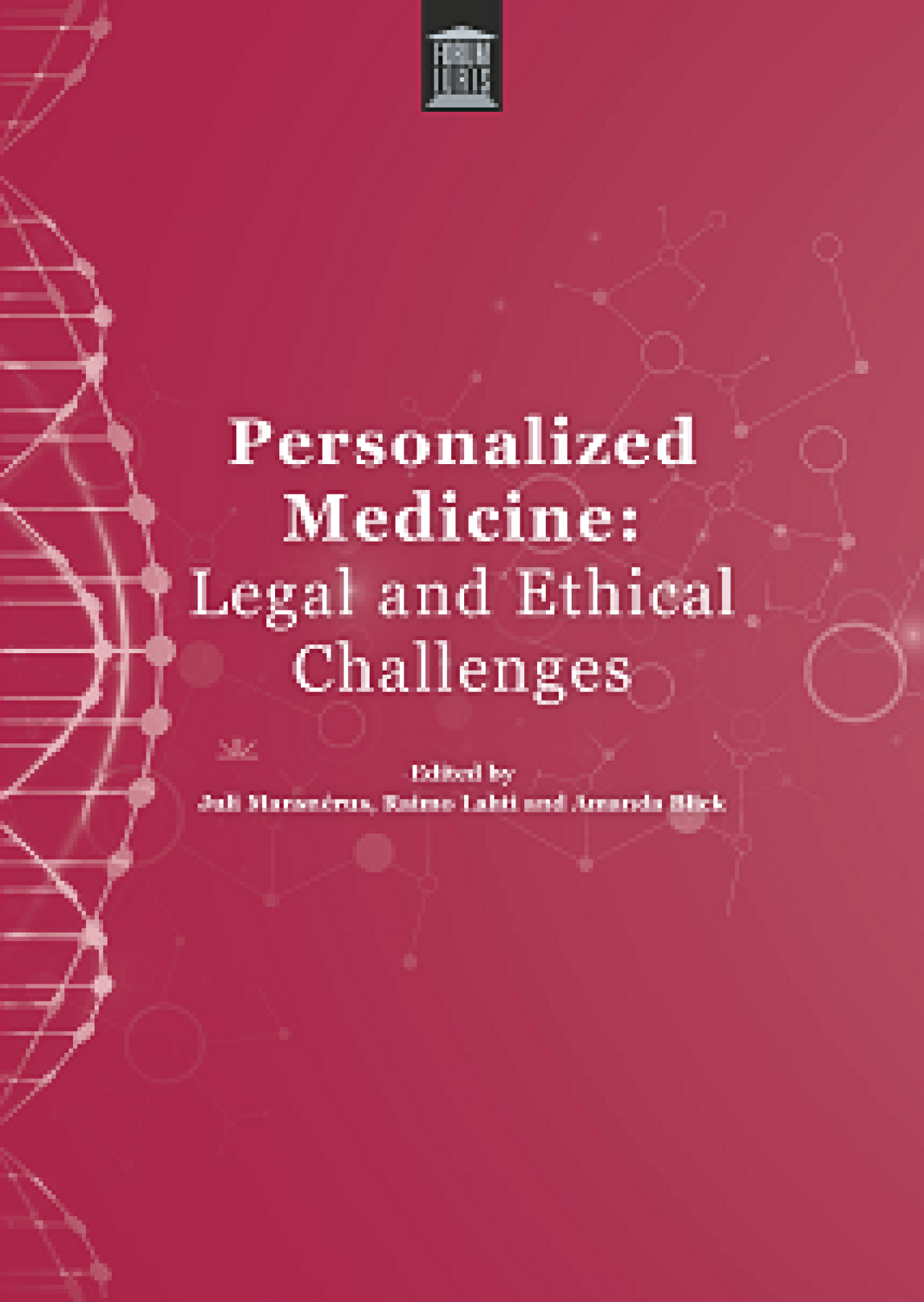- Publications
-
Personalized medicine: Legal and ethical challenges
The first Nordic literature on jurisprudence and personalized medicine was Anne Kjersti Befring's doctoral dissertation, which is published on this website. Several actors at the University of Helsinki have now published an anthology on the subject. It discusses, among other things, Befring's book and the assessments she makes of the method and the need for new legislation.
These legislative developments and challenges have been discussed in light of the Finnish and the common-European experiences (editors: Mansnérus, Juli; Lahti, Raimo; Blick, Amanda). During recent years, the Finnish legislative processes aiming at generating ‘innovation-friendly’ legislation for scientific research purposes as well as integrating genomic research results into the clinical setting have been heavily challenged by rapid developments in technology and medicine. In particular, there is a need to pursue the right balance between scientific and commercial interests, public health, and individual rights.
We aim at providing insights into the legislative processes surrounding personalized medicine with a special focus on how the freedom of science, equitable access to healthcare, public health, and commercial issues that must be balanced with individual rights as expressed in the EU Charter and the Council of Europe’s Oviedo Convention on Human Rights and Biomedicine.
A wide spectrum of different types of challenges arises; among other things, there is a need to discuss the Finnish and international legislation of genome testing in terms of consent on behalf of a young child. Also the legal and ethical aspects of disruptive gene-editing technologies need to be analysed: How should we interpret the concept of human dignity in the bioethical discussion surrounding germline editing? Furthermore, an overview of ongoing initiatives to accelerate the market-entry of advanced therapy medicinal products will be provided.
The European regulators are now taking measures to create a facilitative regulatory environment that encourages innovation, protects public health, and enables timely patient access to innovative, new therapies whilst ensuring patient safety. The role of risk-proportionate adaptations to clinical trials and GMP manufacture along with the European Medicines Agency’s early-access incentives and initiatives are presented as potential facilitators of market entry.
Furthermore, in this context, the role of conditional reimbursement schemes and risk sharing-agreements is also discussed in light of the newest Finnish experiences. Furthermore, in terms of patent law, some specific challenges arise; in this anthology, attention is paid to the recent transatlantic legal dispute over a patent concerning the use of the CRISPR/Cas9 system in eukaryotic cells.
